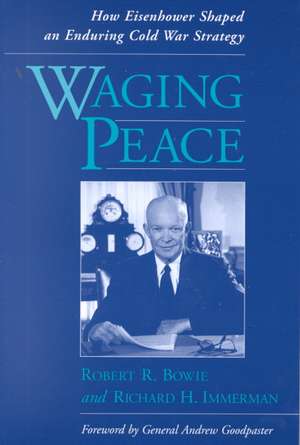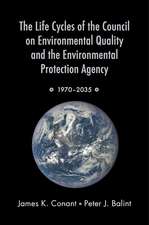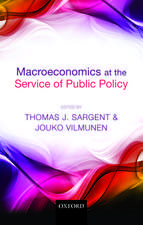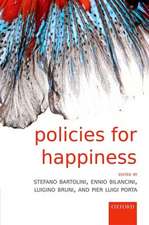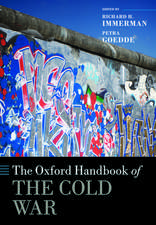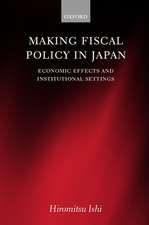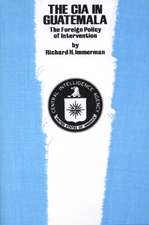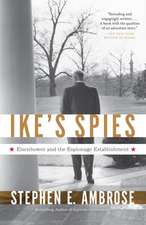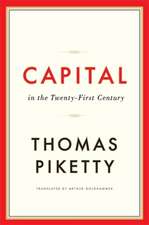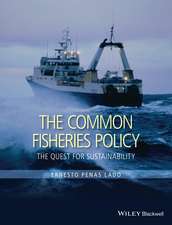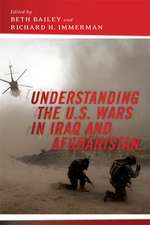Waging Peace: How Eisenhower Shaped an Enduring Cold War Strategy
Autor Robert R. Bowie, Richard H. Immermanen Limba Engleză Paperback – 5 oct 2000
| Toate formatele și edițiile | Preț | Express |
|---|---|---|
| Paperback (1) | 297.87 lei 31-37 zile | |
| Oxford University Press – 5 oct 2000 | 297.87 lei 31-37 zile | |
| Hardback (1) | 234.07 lei 6-8 săpt. | |
| Oxford University Press – 30 apr 1998 | 234.07 lei 6-8 săpt. |
Preț: 297.87 lei
Preț vechi: 323.27 lei
-8% Nou
Puncte Express: 447
Preț estimativ în valută:
56.100€ • 59.66$ • 47.44£
56.100€ • 59.66$ • 47.44£
Carte tipărită la comandă
Livrare economică 21-27 martie
Preluare comenzi: 021 569.72.76
Specificații
ISBN-13: 9780195140484
ISBN-10: 0195140486
Pagini: 426
Dimensiuni: 234 x 155 x 22 mm
Greutate: 0.51 kg
Ediția:Oxf Univ PR Pbk.
Editura: Oxford University Press
Colecția OUP USA
Locul publicării:New York, United States
ISBN-10: 0195140486
Pagini: 426
Dimensiuni: 234 x 155 x 22 mm
Greutate: 0.51 kg
Ediția:Oxf Univ PR Pbk.
Editura: Oxford University Press
Colecția OUP USA
Locul publicării:New York, United States
Recenzii
Bowie and Immerman make an interesting and largely convincing case that the differences between Eisenhower and Truman were more important than the continuities. Their work will become indispensable for our understanding of America's Cold War history.
this work constitutes a major contribution to the historiography of the early Cold War
prodigiously researched
"Together, the two authors have thoroughly researched and elegantly analyzed Eisenhower's basic national security strategy....the authors present their points and supporting evidence on the Eisenhower administration so clearly that it it not difficult to draw larger conclusions. This book provides an invaluable contribution to scholarship on Eisenhower, American foreign policy, and presidential decision making, and will be of great interest to faculty and students alike."--Political Science Quarterly
"Immerman and Bowie have written a stimulating, indispensable account of the Eisenhower Administration's Cold War strategy."--Melvyn P. Leffler, Stettinius Professor of American History, University of Virginia
"A detached history, striving for objectivity but informed by firsthand knowledge of people and events, Waging Peace is an extraordinarily important contribution to our understanding of U.S. foreign policy in the 1950s. It will reshape thinking and writing about both the Truman and Eisenhower administrations."--Ernest R. May, Charles Warren Professor of History, Harvard University
"It is a superb contribution to our understanding not only of the ways in which President Eisenhower and his Administration dealt with the challenging security and foreign policy issues of that period but more broadly of the nature and value of responsible leadership in the American presidency. The account the authors have provided is authentic and informative, and will be of lasting value."--Andrew J. Goodpaster, Co-Chair, The Atlantic Council of the United States
"Bowie and Immerman have given us the best study of Eisenhower's security policy and the processes by which it was produced. Both carry important lessons for our times and are supported by a wealth of detail and analysis. It changed my understanding of the Eisenhower administration."--Robert Jervis, Institute of War and Peace Studies, Columbia University
"Waging Peace is an important contribution to Eisenhower scholarship...the book provides a valuable synthesis combined with a compelling exposition of the surprisingly modern policy competition within the administration."--Perspectives on Political Science
"A superb piece of scholarship. The very best on its subject!"--William B. Pickett, Rose-Hulman Institute of Technology
"Waging Peace is the most comprehensive treatment of the policy-making process behind the New Look....[the book] will be essential reading for all historians, political scientists, and policy analysts interested in Cold War national security policy and, more broadly, the relationship between the policy-making process and strategy."--The Journal of Military History
this work constitutes a major contribution to the historiography of the early Cold War
prodigiously researched
"Together, the two authors have thoroughly researched and elegantly analyzed Eisenhower's basic national security strategy....the authors present their points and supporting evidence on the Eisenhower administration so clearly that it it not difficult to draw larger conclusions. This book provides an invaluable contribution to scholarship on Eisenhower, American foreign policy, and presidential decision making, and will be of great interest to faculty and students alike."--Political Science Quarterly
"Immerman and Bowie have written a stimulating, indispensable account of the Eisenhower Administration's Cold War strategy."--Melvyn P. Leffler, Stettinius Professor of American History, University of Virginia
"A detached history, striving for objectivity but informed by firsthand knowledge of people and events, Waging Peace is an extraordinarily important contribution to our understanding of U.S. foreign policy in the 1950s. It will reshape thinking and writing about both the Truman and Eisenhower administrations."--Ernest R. May, Charles Warren Professor of History, Harvard University
"It is a superb contribution to our understanding not only of the ways in which President Eisenhower and his Administration dealt with the challenging security and foreign policy issues of that period but more broadly of the nature and value of responsible leadership in the American presidency. The account the authors have provided is authentic and informative, and will be of lasting value."--Andrew J. Goodpaster, Co-Chair, The Atlantic Council of the United States
"Bowie and Immerman have given us the best study of Eisenhower's security policy and the processes by which it was produced. Both carry important lessons for our times and are supported by a wealth of detail and analysis. It changed my understanding of the Eisenhower administration."--Robert Jervis, Institute of War and Peace Studies, Columbia University
"Waging Peace is an important contribution to Eisenhower scholarship...the book provides a valuable synthesis combined with a compelling exposition of the surprisingly modern policy competition within the administration."--Perspectives on Political Science
"A superb piece of scholarship. The very best on its subject!"--William B. Pickett, Rose-Hulman Institute of Technology
"Waging Peace is the most comprehensive treatment of the policy-making process behind the New Look....[the book] will be essential reading for all historians, political scientists, and policy analysts interested in Cold War national security policy and, more broadly, the relationship between the policy-making process and strategy."--The Journal of Military History
Notă biografică
Robert R. Bowie is Emeritus Director of the Center for International Studies at Harvard University. Richard H. Immerman is a Professor at the Center for the Study of Force and Diplomacy at Temple University.
